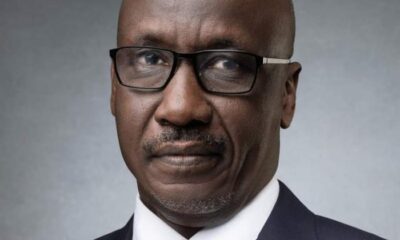Political Issues
The National Assembly Vs. Fashola: the Unending Issues -By Oluseun Onigbinde


Oluseun Onigbinde
The National Assembly has summoned Babatunde Fashola, the minister of Power, Works and Housing and the former governor of Lagos State, over his comments regarding the 2017 budget. One of the key issues involved is the reduction of funding allocations to certain priority projects and instead, an injection of funds to marginal projects, such as boreholes and solar lighting. The Budget Office is yet to release the details of the budget signed by the acting president, Professor Yemi Osinbajo, and independent experts are not yet able to ascertain the extent of the alterations.
If Nigeria decides to fully follow the US presidential system, the powers of the legislature to tamper with or insert items into the budget will end up in the congress. We also must acknowledge that the budget goes beyond a planning document; it is a piece of legislation. If we are to treat it as an Executive Bill, then the National Assembly can add, delete or modify clauses in it, and it is left to the executive to reject or accept specific alterations in the estimates. The National Assembly (NASS) possesses this right, but are those rights being applied for pure motives and are they layered on effective planning?
The first challenge with the Nigerian budget is that it is closer to a cash vending machine than to a planning piece. If we are to get our budget process right, we should effectively link it to a mutually agreed upon planning document. For starters, the APC as the governing party should have done its homework from inception, locked itself in a retreat and defined priority items in the context of possible resources. The lack of understanding on medium-term planning will keep applying the budget to short-term prompting of the ministerial head and legislators who are more interested in micro-projects in their constituencies, most of which are fraught with numerous documented issues.
This squabble also shows that the National Assembly does not respect its own process. If the budget process provides an opportunity for the executive to defend its proposals, why do the National Assembly members not simply argue out the line items in the public glare? The National Assembly should also salvage its credibility by painstakingly reviewing the proposals and bringing all the issues, insertions and reductions involved to the knowledge of the minister. As Fashola pointed out, it is waste of public funds if debates are held on the budget but the National Assembly members still decides to do whatever they want regardless of the debate outcomes. It is an abuse of process if lawmakers decide not to be transparent in public defence sessions regarding their decisions on line items.
The issue of appropriation should be tested at the Supreme Court. The executive should brave and clear up this issue. President Umaru Yar’Adua once attempted this but developed cold feet. The framers of the constitution already gave the powers of budget implementation to the executive. This means there are no legal consequences if certain projects are not funded, rather there are only political implications in the next budget cycle. The acting president signed these changes without waiting to hear and consider public opinion. With the budget already signed, the back and forth between NASS and Fashola is good for public education but it does too little in terms of policy impact.
The extent of the powers of NASS should be interrogated and this should include the appropriation to statutory agencies, including the National Assembly itself. The National Assembly needs proper education on the roles of the federal government. Also, the N100 billion constituency fund can be the vehicle to fill up micro-projects – a cure for representation that the National Assembly fully guards.
We need a more harmonious understanding and respect among all the arms of government on the direction of the country, guided by a planning document, filtered through the annual budgets. This is the only sustainable way out of the current national crisis. In the meantime, the executive should rest from its media wars and prepare a supplementary budget or send a request for virement (re-allocation of unexpended funds) in the next few months. Though this amounts to even more wasted legislative hours that could have been applied to other things. This is how we have democracy and its creaky wheels – cobbling together consensus among the public and the bodies of government
Oluseun Onigbinde is the Lead Partner of BudgIT.

















